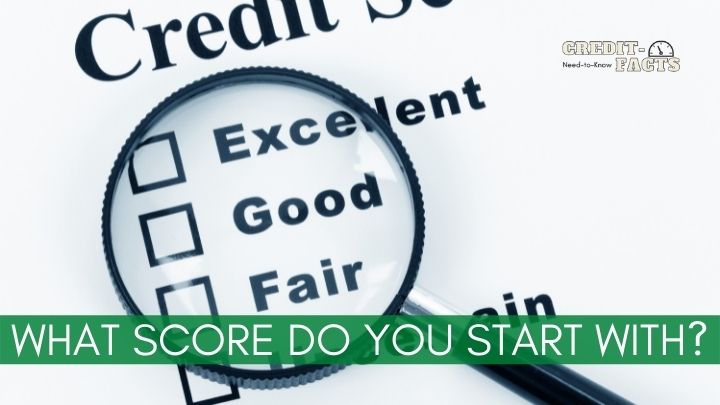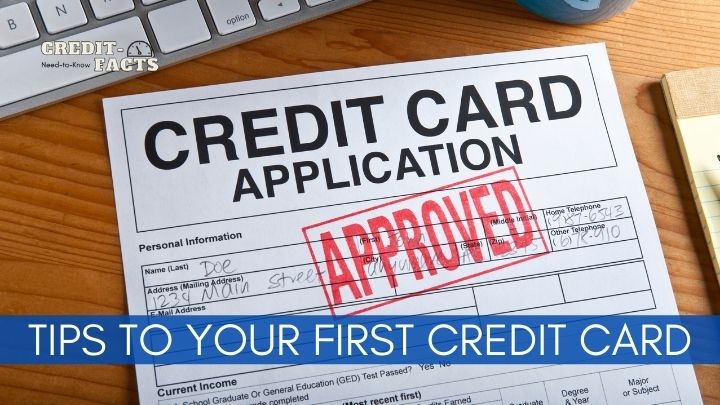I remember when I first started on my credit journey. I would always get declined for a loan or a card because I didn’t have a credit history.
That had me wonder what my starting credit score was and how I can make it better.
I’ve read a lot of different things on the internet, but the resources were never conclusive. The one thing that I’ve learned over time is that everyone’s credit journey is unique. There isn’t just one starting point for everybody or one way to build up your score either.
In this article, I will go over everything I learned when I started on my own credit journey, how I built it up, and what you can do to keep your score growing.
If you’re trying to get your first credit card or loan then this article is for you. I will also provide the link to check your starting credit score for free at the end of this post.
Do you start with a Zero Credit Score?
The short answer is, No! You don’t start with a zero credit score.
The long answer is if you never applied for credit before then the chances are that your credit history doesn’t exist yet. You may not have any data on file that proves that you paid back previous lenders or returned their property in time. So, you’ll start as a brand new credit file until you establish your first payment history.
In this case, it’s not a zero credit score but rather a “no credit” score. This is just the way that the FICO scoring system works and doesn’t mean anything negative about your character or level of trustworthiness.
 What Credit Score Do You Start With?
What Credit Score Do You Start With?
If you’ve never had credit before then your starting score will be in the “no credit” range somewhere between 300-500 points.
This is because many of the scoring models look at the age of your file, any public records or liens that are associated with your name, and whether there are accounts reported in collections.
You may not have a high score but at least you will know what it is and be able to work to improve it.
 Tips to get your first credit card or loan
Tips to get your first credit card or loan
Trying to get your first card or loan without any prior history of credit can be a nightmare. Not only will you probably get denied for your applications, but the denials will also lower your starting score.
So, how do you break that cycle and get your first credit card?
Secured Credit Card
The best way to start building your credit history is by getting a secured credit card with your bank.
A secured credit card is a lot like a normal credit card except you put down some money (the deposit) which acts as the security guarantee. Depending on the bank you choose to go with, the deposit can be anywhere between $200 to $500.
Using and paying off the secured credit card will start adding positive marks on your credit report. Most importantly, it also gives you a chance to try out what credit cards can do for you.
Department Store Credit Cards
Another great way to build up your credit history is by getting a department store card. For example, Nordstrom and Bloomingdale’s have their own cards which usually offer different kinds of rewards with no annual fee.
They are easy to get approved for, but you can only use them at their respective stores. Also, they tend to give you a very low credit limit to start with. Of course, it’s best to use them and pay them off every month so they can report positively to your credit history.
Get a Co-Signer
If you’re struggling to get a secured or department store card, then you might want to try having someone cosign for you. If you have a family member that has a good credit score, then they might be willing to cosign on one of your accounts.
This option is good because it allows you to build up your credit to a certain extent before moving onto a better card with lower interest rates and higher a credit limit.
What impacts my starting credit score?
Before building your credit history, several other things can impact your starting credit score.
Your age
If you’re a young adult between the ages of 18 and 21, then you will most likely start off with a lower credit score. This is because your credit history isn’t as strong when you’re in this range of the age spectrum.
Paying bills
Paying bills and having accounts in your name is a great way to positively impact your starting credit score. Companies look at your payment history when determining how trustworthy you are with their money.
A missed or late payment will drop your score while on-time payments tend to improve it. Also, having more than one account can also be a good thing if the accounts are in good standing.
Holding a job
Getting a job and sustaining it for several months is also another great way to build your credit score when you start. Having a stable job shows lenders that you’re responsible and can afford to pay your loans or credit cards.
Having a bank account
Opening a bank account is also important when trying to build your credit score. Of course, you want to make sure that you keep some money in it and keep it in good standing. “Free-checking” or savings accounts are perfect because they don’t have any monthly fees.
When trying to get your first credit card or loan, having an account in your name shows creditors that you’re able to sustain monthly expenses by paying the bank fees every month.
Final Thoughts
I hope this article has helped you get a better understanding of what kind of credit score you start with and what impacts it.
You can follow the tips above to get your first credit card and improve your credit score without one.
As promised, you can check your credit score for free using the link below. And if you still have questions, then leave a comment below and I’ll be sure to answer it as soon as possible!
Thanks for reading the article!

 Tips to get your first credit card or loan
Tips to get your first credit card or loan
